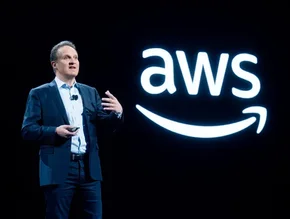Siemens: Technology key to driving decarbonisation targets

Fewer than half of organisations expect to meet decarbonisation targets by 2030, according to a study by technology company Siemens which found that technology and digitalisation are key drivers to achieving these goals.
According to the report by Siemens Smart Infrastructure, titled Siemens Infrastructure Transition Monitor 2023: The Great Divide on The Path to Net Zero, there is limited alignment on priorities and how best to progress towards a decarbonised and resource-efficient world. Whilst more than half of people surveyed believe the infrastructure transition is accelerating in their region, a quarter of participants - senior executives from seven major industry groups - said that progress is “too slow”, while 29% believe progress is “coordinated”, and 31% describe it as “on target”.
“The infrastructure transition is accelerating, putting pressure on systems worldwide – from energy, to mobility, to buildings,” Matthias Rebellius, managing board member of Siemens AG and CEO of Smart Infrastructure, said. “Evolving the world’s infrastructure is of the utmost importance to enable progress towards decarbonisation, resource efficiency, and social wellbeing.
“Technology and digitalisation are instrumental to achieving this transition in a smart and sustainable way. At Siemens Smart Infrastructure we have already taken the first steps, creating innovative products, systems, solutions, and services to support the present and future challenges of urbanisation and climate change.”
Only 40% of organisations expect to reach decarbonisation targets this year
Businesses today are under pressure to decarbonise their business models, assets, and infrastructure. According to the report, nearly half have targets for Scope 1 and 2 emissions (47%). Only 40% think it is likely that they will meet their targets for the year ahead and just 44% expect to meet their 2030 targets. The report indicates that there could be a correlation between confidence in organisational growth prospects and confidence in decarbonisation targets.
Another key area of consideration for businesses is their buildings. Only 37% of respondents rated their organisation as mature or advanced in improving the energy efficiency of facilities and buildings, and just 30% said the same for electrification and/or decarbonisation of heating and cooling. There is, however, hope that businesses can leverage innovative solutions to enhance their performance and sustainability of their buildings without the need for extensive new construction, but progress needs to be quicker.
Technology and digitalisation to accelerate transition
The report indicates that technology and digitalisation are key levers of a successful infrastructure transition. This is expected to have the biggest impact on decarbonisation, resource efficiency and wellbeing over the next three years. Key technologies that could have the biggest positive impact include AI-driven predictions and automation, virtual and augmented reality, and 5G mobile networks. According to nearly half of respondents, digitalisation has significant or massive potential to support progress in energy efficiency (48%), productivity (46%), and decarbonisation (45%) within their organisations.
“Overall, the report confirms that whilst there is not always a strong alignment between citizens, business and government on the main requirements and goals of the infrastructure transition, it is critical to act now to mitigate the effects of climate change,” Rebellius concluded. “Collaboration and digitalisation across the areas of energy, mobility and buildings will be key in paving the way forward toward a decarbonised world.”
******
For more insights into the world of Technology - check out the latest edition of Technology Magazine and be sure to follow us on LinkedIn & Twitter.
Other magazines that may be of interest - AI Magazine | Cyber Magazine.
Please also check out our upcoming event - Cloud and 5G LIVE on October 11 and 12 2023.
******
BizClik is a global provider of B2B digital media platforms that cover Executive Communities for CEOs, CFOs, CMOs, Sustainability leaders, Procurement & Supply Chain leaders, Technology & AI leaders, Cyber leaders, FinTech & InsurTech leaders as well as covering industries such as Manufacturing, Mining, Energy, EV, Construction, Healthcare and Food.
BizClik – based in London, Dubai, and New York – offers services such as content creation, advertising & sponsorship solutions, webinars & events.
- HPE: Businesses Must Tackle Blind Spots in AI StrategiesIT Procurement
- Microsoft Invests $1.7bn in Indonesia's Cloud and AI FutureCloud & Cybersecurity
- Flexential: Momentum Report Highlights Hybrid IT InnovationCloud & Cybersecurity
- Dell Technologies: Firms Expect AI to Transform IndustriesAI & Machine Learning






